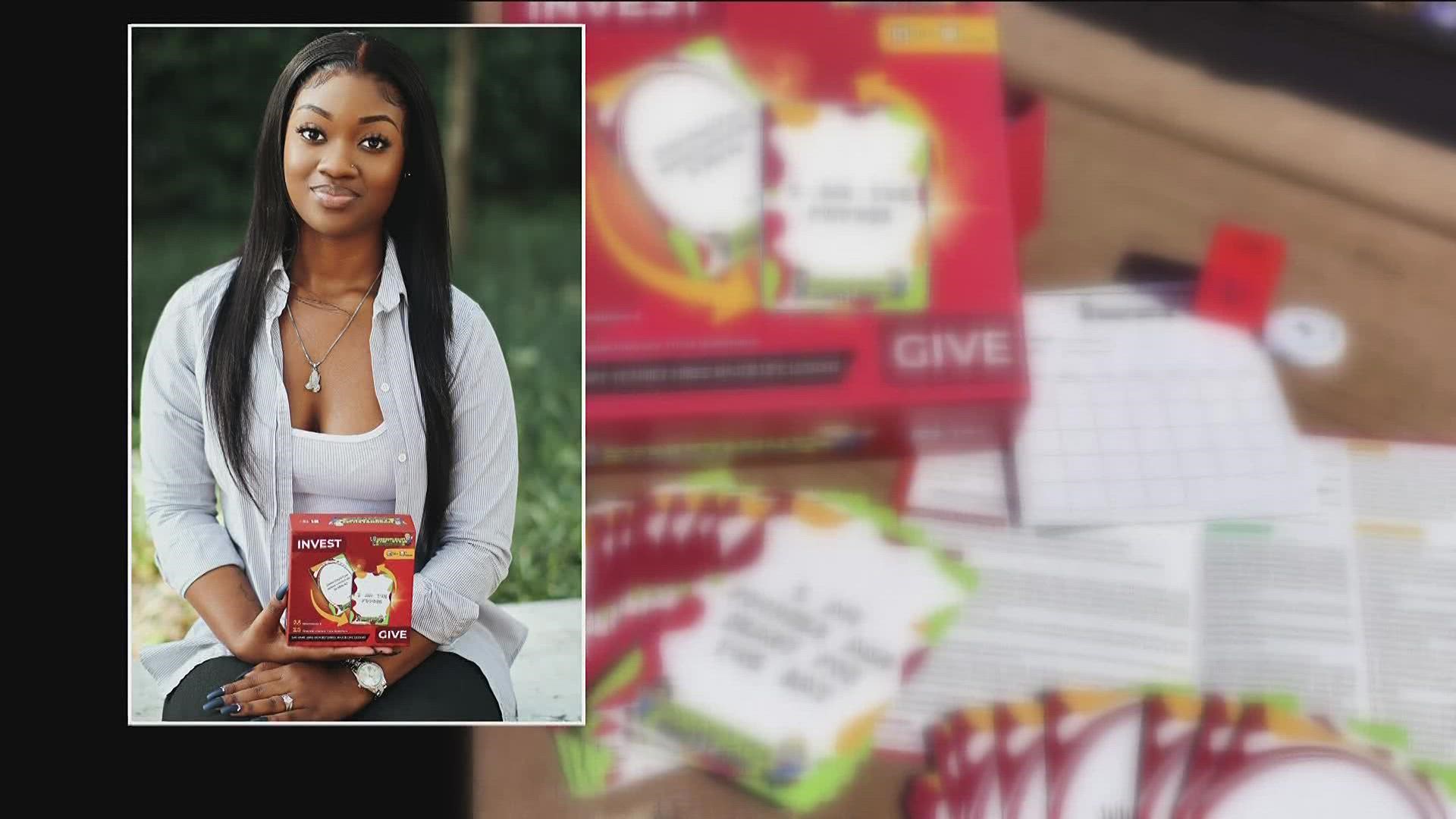ATLANTA — Twenty-year-old Antonia Jackson said the idea to create a tabletop game came to her seemingly out of nowhere.
"I was just riding the car one day with my husband and out of the blue, I blurted out, I want to create a board game," she recalled. "It just wouldn't leave my mind and I was like, let me just stop and think, maybe this is a sign from God."
Jackson said her faith has brought her through many hardships.
"The main thing I do every every morning, I say 'thank you God that I get to live another day because another day is a chance to make today better than yesterday,'" she said.
It's that mindset that helped her overcome the struggles of being homeless for many years as a child.
"It was my five other siblings along with my mother," she recalled. "We had to persevere many times, sleeping in cars, sleeping in shelters, in abandoned houses. We used to drive in a car every day back and forth to school, hoping the car wouldn't break down."
Jackson remembers on those drives playing Sam Cooke's "A Change is Gonna Come."
And it did. At age 12, she became a community advocate. By 15, she was a published author.
And now at 20, she's fulfilled her latest goal of becoming a game creator.
The game, called Accountability Money Box, focuses on self-love, affirmations, and financial literacy.
“These are the life lessons that made me who I am today," she said. "I was taught this at an early age when me and my siblings were homeless. I was taught at an early age how to serve…how to save, how to invest.”
Jackson explained her goal is to help families introduce financial literacy as well as a better understanding of investing and charitable donations. The game is designed to be played once a day for a month.
Printed on the front of each card is an affirmation. The child or player is encouraged to repeat it three times before moving on to the money-based trivia question on the back of the card.
If the player answers the question correctly, they roll the money dice. On each side of the die is a dollar amount between $1 and $5.
The player then writes down the dollar amount on their score card for that day, and repeats the process each day for a month.
At the end of the month, the earned dollar amount is totaled and the player flips the "choice coin," which indicates whether the player should "invest" or "give" that dollar amount. The latter includes a list of potential charities to donate to. The invest option leads to a pamphlet about investment opportunities.
Jackson added families can use real money, or use it as a theoretical lesson about both building wealth and being charitable.
She also hopes the game will help build the future leaders of tomorrow.
“I can't help everyone, but I know I've done a job well done if I've helped someone," she said. "And if I leave here today, that's what I want to be remembered by.”

